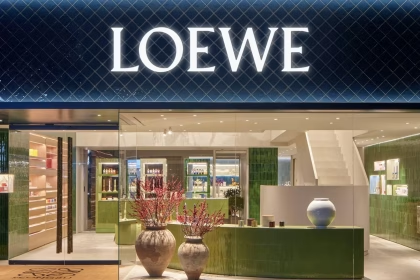Global online fast fashion retailer, Shein is set to open 30 brick-and-mortar stores this year in the UK, marking a significant shift in the brick-and-mortar retail landscape. The Chinese fast-fashion brand, which has gained immense popularity among Gen Z consumers, has primarily operated as an e-commerce platform, shipping to over 220 countries and regions worldwide.
Shein’s success can be attributed to its “real-time fashion” business model, which takes fast fashion to the extreme by identifying trends quickly and minimizing manufacturing cycles. The company uses algorithms to establish the latest fashion trends, and its 2,000-strong design team creates an astonishing 6,000 SKUs every single day. In 2020, Shein launched 150,000 new items throughout the year, with an average of more than 10,000 new items per month.
The brand’s marketing strategy has also played a crucial role in its growth. Shein relies on micro-influencer marketing, using content creators to produce and post content related to the brand on platforms like TikTok and Instagram. This approach has helped Shein surpass Amazon in monthly downloads and become the most popular online clothing store in the US, according to a survey of American teenagers.
The company’s expansion into physical retail comes after successful pop-up stores in cities like Manchester, Birmingham, and Bristol. Although the exact locations of the new stores have not been disclosed, they are expected to rival popular high street brands such as Primark, PrettyLittleThing, Poundland, and New Look.
Shein’s move into brick-and-mortar retail is part of its broader growth strategy in the EMEA (Europe/UK, Middle East, Africa) region, which is considered one of its most lucrative markets. The company is also relocating its HQ from Shanghai to opening new headquarters in Dublin, Ireland, to manage and grow its business in the region.
Shein’s expansion into physical stores could have a significant impact on the UK retail apparel market. The company claims to sell 98 percent of the merchandise it produces, and its competitive pricing strategy allows it to outcompete Western brands. With the opening of brick-and-mortar stores, Shein is poised to further disrupt the retail industry that has struggled to appeal to the new younger consumer. Gen Z’s and Millenials currently make up 21% of fast fashion retailer’s user base in the UK using Shein.
However, the company’s rapid growth has raised concerns about its environmental impact. As a fast-fashion company, Shein manufactures a large volume of apparel from synthetic materials that do not biodegrade. The company’s manufacturing and shipping methods also contribute to air and water pollution. Shein’s carbon footprint, estimated at 6.3 million tons of carbon dioxide per year, falls well below the United Nations’ target to reduce global carbon emissions by 45% by 2030.
Despite these concerns, Shein’s expansion into physical stores is expected to create thousands of jobs and generate millions of dollars in economic value. This expansion is expected to have significant implications for the UK retail industry. As Shein solidifies its position as a leading player in the fast-fashion market, traditional retailers may face increased competition and pressure to adapt their strategies to keep up with the rapidly changing consumer preferences and shopping habits.
Moreover, Shein’s entrance into the physical retail space could potentially reshape the dynamics of the high street, as the brand embraces a strategy of downsizing physical space and inventory while maintaining a constant supply of new merchandise. This approach allows the company to cater to the demands of its target audience, who seek the latest trends at affordable prices.
As Shein continues to expand, competitors will need to adapt their strategies to keep up with the fast-paced, trend-driven approach that has made the Chinese brand a global fashion powerhouse.

















